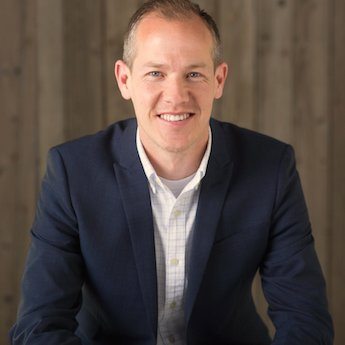The Paycheck Protection Program (PPP), part of the CARES Act, has emerged as an exceptionally popular policy program by the US government in its efforts to support a faltering economy.
In brief, the PPP provides a loan for 2.5X times monthly payroll for struggling SMEs impacted by the COVID-19 crisis. If an employer maintains payroll, the loan is forgiven and becomes a grant. The policy thesis is that by providing these loans/grants individuals will remain employed and thus avoid costly unemployment payments saving the government money. Simultaneously, the SME may avoid the agony of furloughing or firing staff. Both sides benefit.
The PPP saw the first round of money, about $349 billion, go out the door rather rapidly. Congress returned with additional funding which is being allocated and distributed now.
While not perfect and in need of some adjustments, businesses have been rushing to banks, both large and small, and Fintechs to apply for the money.
Lendio, a Fintech that provides an SME loan matching service, has emerged as a robust participant in the PPP loan-making process.
Lendio co-founder and CEO Brock Blake has been actively tweeting about his experience with the distribution of PPP cash and what the front line trenches are like. On Monday, Blake Tweeted about the Small Business Administration’s green screen tech that is struggling to handle the volume.
Every lender is saying the same thing this morning. When they try to submit to Etran, it’s crashing. https://t.co/yhqQRrtQdV
— Brock Blake (@BrockBlake) April 27, 2020
Blake is also responding directly to SME borrowers that are attempting to receive the PPP money.
SBA released guidance last night that the 10-day window started yesterday. So, the lender has until May 8th to fund. https://t.co/awXkOqP6zp
— Brock Blake (@BrockBlake) April 30, 2020
The SBA is attempting to turn around funding within 10 days unless there is missing paperwork. If something is missing from the borrower, the lender has a total of 20 calendar days to disburse funds, explains Lendio. If they still do not have adequate information to fund the loan, the lender may cancel the loan.
 Crowdfund Insider reached out to Blake with a few additional questions. We asked Blake that, after facilitating 70,000+ loans the first time, how much of this money went to smaller firms and what was the total:
Crowdfund Insider reached out to Blake with a few additional questions. We asked Blake that, after facilitating 70,000+ loans the first time, how much of this money went to smaller firms and what was the total:
“Sole props [proprietors] and businesses with less than ten employees made up 91% of Lendio’s total PPP loans facilitated,” said Blake. “Sole props were not authorized by the SBA to apply for loans in the first week, which put them at a major disadvantage. For that reason, these business owners only made up 14% of the total loans facilitated through Lendio.”
CI noted that there has been a lot of confusion regarding PPP. Some of it is understandable. But much of the money has still not been distributed. So what’s the hold-up?
“Quite simply, the holdup is the volume of applications and the short window allotted for processing. Over the course of about fourteen days, lenders around the country have approved more SBA loans than the SBA itself has funded over the last decade,” said Blake.
Anecdotally, CI is hearing that community banks/smaller lenders have been able to process more loans to smalls and bigger banks have been focused on their bigger accounts. Is that accurate?
“That’s what it looks like, unfortunately,” stated Blake. “Lendio has received hundreds of comments and messages from borrowers saying they came to us after being turned down by their banks. The average PPP loan size through the Lendio platform was $82,000, versus the national average of $206,000. This average coupled with the volume Lendio was able to facilitate implies that the smallest of small businesses were largely ignored by the larger banks. With more fintech lenders approved and processes in place for them, they’ll be able to expedite more of those small-dollar loans in this second round of funding.”
As Fintechs tend to have more a more streamlined tech stack and more user-friendly processes we asked Blake if Fintech lenders been first in the queue to provide these loans?
“That would have been my preference. Fintech lenders’ superpower is their ability to process a high volume of loan applications, often for smaller amounts. This would have gotten cash into the hands of small business owners much more efficiently. The fact that they were approved so late into the first round really hurt some of the smallest businesses throughout the country. We’re extremely hopeful of the fact that more fintech lenders have been approved means that more main street businesses will have access to these relief funds.”
Since we spoke to Blake, the government better defined the intent of PPP to target smaller firms. Some bigs have, in fact, sent the money back due to the public opprobrium.
As for necessary tweaks, Karen Kerrigan, CEO and President of the Small Business & Entrepreneurship Council (SBE Council) issued a statement today on recommended modifications of the PPP. The entire set of policy adjustments are available here.
While not perfect, the PPP may be emblematic of what can be accomplished when an Administration, guided by Secretary of the Treasury Paul Mnuchin, and a bi-partisan Congress, decide to move quickly and provide support for the most important element of the US economy during a government-mandated lockdown.



